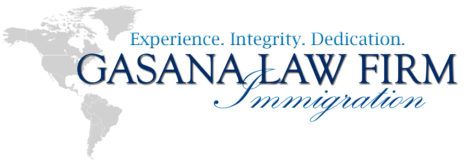On August 3, 2020, the Department of Homeland Security (DHS) finalized changes to the fees U.S. Citizenship and Immigration Services (USCIS) charges for various immigration applications. In sum, DHS is increasing fees drastically, adding a new $50 fee for asylum applications, limiting fee waivers, slightly discounting fees for forms currently available for online filing, and charging separate fees for Forms I-765 and I-131 when filed with a pending or concurrently filed Form I-485. These changes are effective October 2, 2020—thus, any application, petition, or request postmarked on this date or later must include payment of the fees established by DHS’s final fee rule. Note that litigation may impact the effective date and it is important to monitor developments in this area. Fortunately, the rule does not contain the transfer of funds to ICE that had been part of the proposed rule.
Key Takeaways of the Final USCIS Filing Fee Rule:
• U.S. Citizenship Application fees are almost doubling from $640 to $1,170 (83% increase)
• Family-Based Green cards fees increasing from $1,675 to $2,750 (64% increase)
• Adjustment of Status (Form I-485) changing in price from $1,140 to $1,130 (0.88% decrease)
• Petition to Remove Conditions on your Green card (Form I-751) price increasing from $595 to $760 (28% increase)
• Employment Authorization (Form I-765) fee increasing from $410 to $550 (34% increase)
• Fee Waivers eliminated for most applications
• Asylum fee will now be $50 vs freeNew Fee for Asylum
DHS has established a new filing fee for asylum applications, despite international treaty obligations calling on governments to protect refugees and the fact that many asylum applicants lack funds upon fleeing their countries. USCIS will charge a $50 filing fee for Form I-589 (Application for Asylum and for Withholding of Removal). There is a limited exception for the asylum fee for unaccompanied minors who are in removal proceedings.
Fee Waivers Eliminated for Most Applications
DHS is eliminating fee waivers except where the INA statutorily requires DHS to provide one. Under the final rule, only VAWA self-petitioners, T nonimmigrants, U nonimmigrants, certain battered spouses and children, TPS applicants, SIJS applicants, and Afghan/Iraqi special immigrants will be eligible for fee waivers. This group may apply for a fee waiver, where applicable, for their principal immigration benefit and any ancillary or subsequent applications, e.g., waivers, appeals, adjustment of status, naturalization, or certificate of citizenship.
New Fee for Asylum
DHS has established a new filing fee for asylum applications, despite international treaty obligations calling on governments to protect refugees and the fact that many asylum applicants lack funds upon fleeing their countries. USCIS will charge a $50 filing fee for Form I-589 (Application for Asylum and for Withholding of Removal). There is a limited exception for the asylum fee for unaccompanied minors who are in removal proceedings.
Fee Waivers Eliminated for Most Applications
DHS is eliminating fee waivers except where the INA statutorily requires DHS to provide one. Under the final rule, only VAWA self-petitioners, T nonimmigrants, U nonimmigrants, certain battered spouses and children, TPS applicants, SIJS applicants, and Afghan/Iraqi special immigrants will be eligible for fee waivers. This group may apply for a fee waiver, where applicable, for their principal immigration benefit and any ancillary or subsequent applications, e.g., waivers, appeals, adjustment of status, naturalization, or certificate of citizenship. To review which application types were previously eligible to apply for a fee waiver but will no longer be able to do so, review the list at 8 CFR 103.7(c).
Fee Waiver Standards Narrowed
Besides eliminating fee waivers, DHS is also considerably narrowing the criteria to qualify for a fee waiver. Currently, applicants may qualify for a fee waiver based on a receipt of a means-tested benefit, financial hardship, or income at or below 150 percent of the federal poverty level income guidelines. After the fee rule is effective, however, only those whose income is at or below 125 percent of the federal poverty level will qualify.10 DHS is also eliminating the reduced fee waiver for naturalization applicants. The reduced fee waiver was available to those whose income was between 150 percent and 200 percent of the federal poverty level. Lastly, applicants who qualify for a fee waiver must file Form I-912, which was previously optional, and must have required supporting documentation—i.e., tax transcripts, W-2 form, or specified documents proving income.
Unbundling of Adjustment Applications – Paying Additional Separate Fees
DHS will now require separate filing fees for Forms I-765 and I-131 when filed concurrently with Form I-485 or while it is pending with USCIS. Until now, adjustment applicants have been able to submit applications for employment authorization and a travel document for no additional fee while USCIS adjudicates their adjustment application. This will no longer be the case. Individuals who wish to work or travel while their adjustment applications are pending must pay an addition $550 to file Form I-765 and $590 to file Form I-131.
Furthermore, DHS is eliminating the reduced child fee for Form I-485. While children under the age of 14 years old have only paid $750 to file Form I-485 (when the child concurrently files with a parent)11, they will now pay the full fee of $ 1,130.
This article is provided for information purposes. Should you have any questions or be interested to learn more about this topic, contact Immigration Attorney Claudine Umuhire Gasana at [email protected] or call us at (281)-809-5599.
